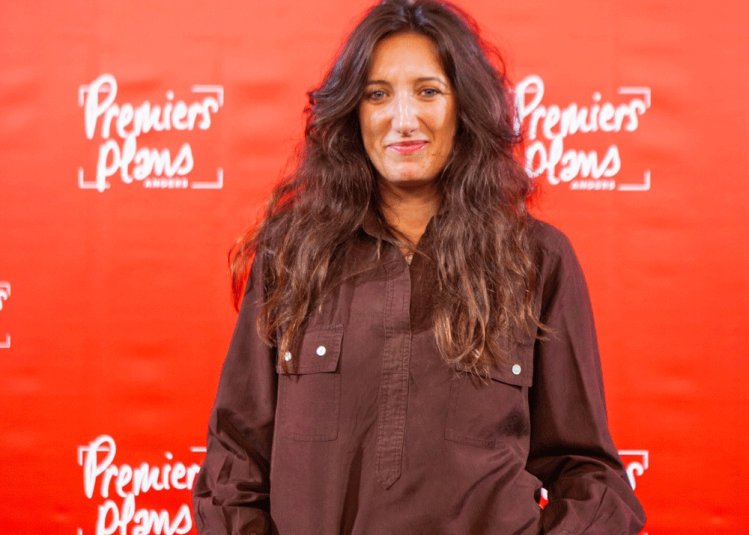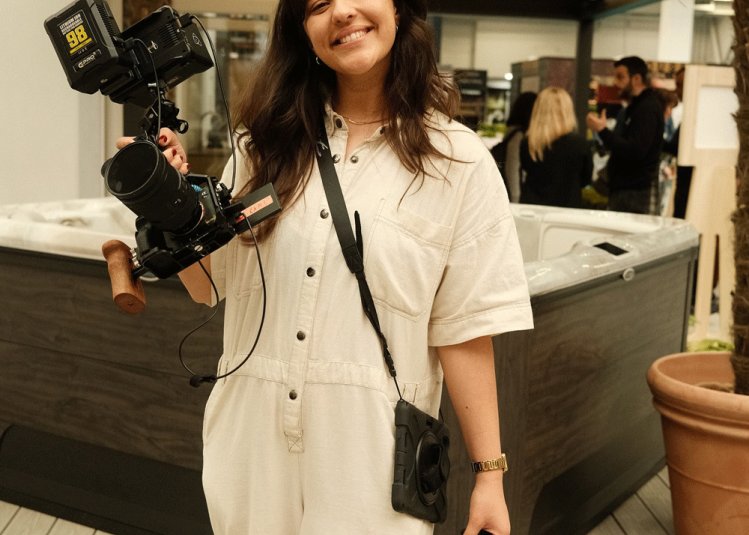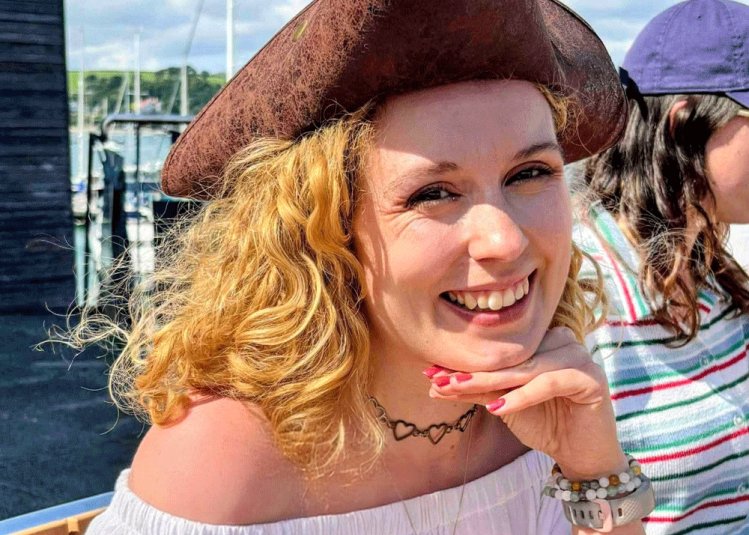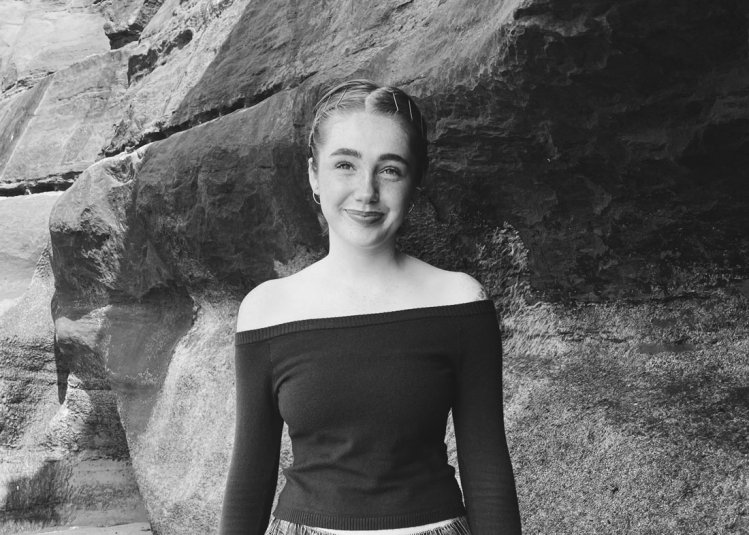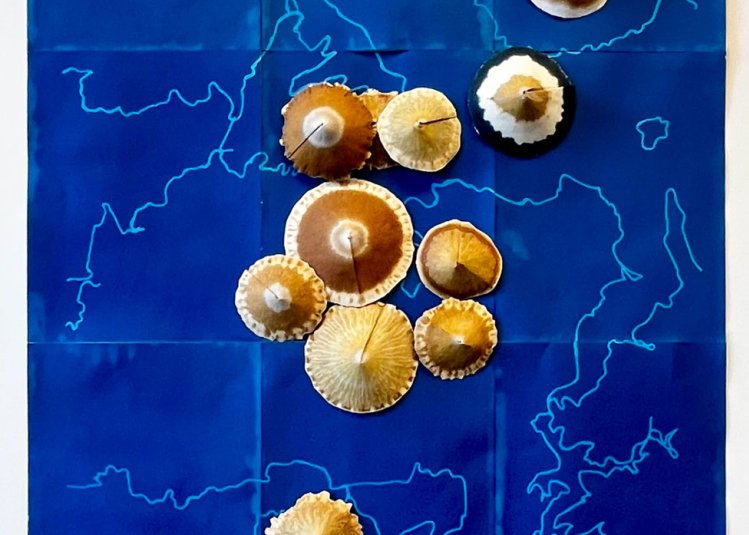Graduate Spotlight: UX Designer Paul Phillips
02 February 2024
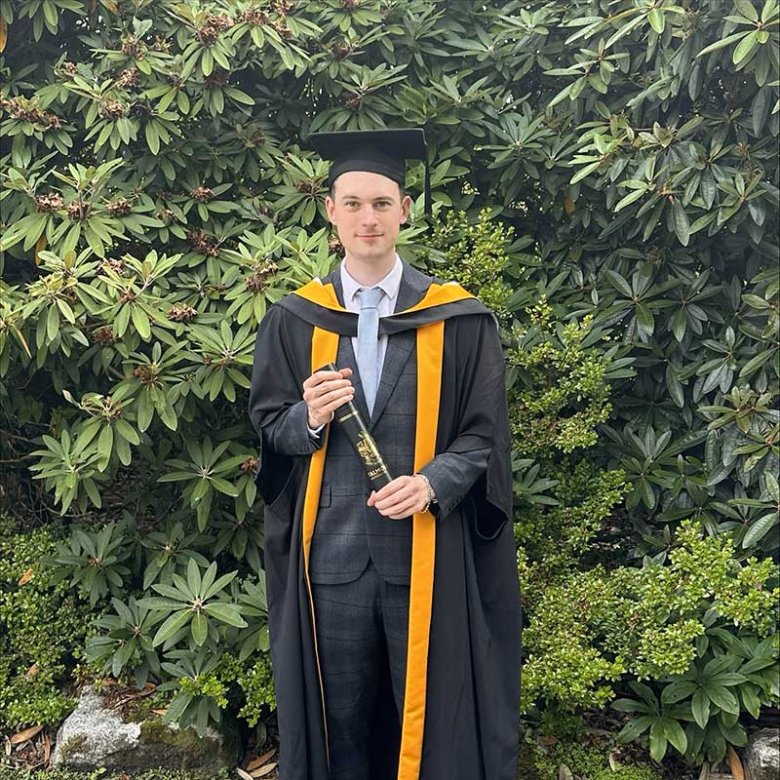
Since completing his online master’s degree with Falmouth University in 2023, Paul Phillips has launched a burgeoning career in user experience design. We chatted to him about his passions, studying online while working and how the MA helped him to become an expert in his field.
Paul Phillips, online User Experience (UX) Design MA graduate and now UX Designer at Westminster City Council, is part of a team who are delivering user centred digital-first projects at the Council.
How did you first become interested in UX design?
During the pandemic I – like many people – went through a period of self-reflection. I’m from an acting and performing arts background but was looking to change careers. I knew I was interested in psychology and business, as well as being creative, so I started exploring careers in that sphere – I didn't know that UX design even existed at that point!
After discovering it, I took a couple of short courses and then a bootcamp, and I realised it fused together everything I’m interested in; design and creativity, analytics, problem solving, psychology and business. I later realised the soft skills from acting were transferrable to UX too, such as observation skills, empathy and the ability to communicate effectively. It’s important as a UX designer to be able to present your designs clearly and tell a story to different audiences.
What made you decide to take on Falmouth’s online master’s in UX design?
I wanted to continue to further my education in UX, and I knew that having a master's degree would be valuable in the future. I have always been open to the idea of living and working abroad, and so having a master's degree has a lot more weight if you are to apply for jobs abroad or visas. It also gives you more credibility as an industry professional more broadly. I needed to continue working while studying, and so was looking for a part-time online degree, and the more I investigated Falmouth, the more interested I became; as a creative university, it just felt right for me.
What was the most valuable thing you took from your time on the course?
I really valued the practical focus; I learned a lot by doing, and by working on practical projects with others on the course. One particular group project involved five of us, which came together over a three-month period, and we were able to go from a problem to an idea to delivering a high-fidelity design concept for an AI food planning application. We had a tutor – a professional UX designer – who supported us throughout the whole process. That was so valuable to me because at that point I hadn't really been exposed to many experienced UX designers, so it gave me real insight into the industry as well as allowing networking. The work produced on that project helped me to secure interviews further down the line when I was applying for jobs, and so that was probably my most valuable part of the course.
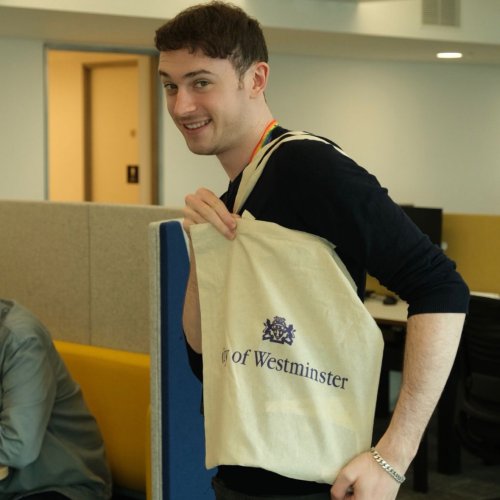
How did you find studying online?
As well as the flexibility it gave me, it was the collaboration element that I particularly enjoyed. Throughout my time on the course, I got to work with other people of all levels, all the way up to directors and those holding senior positions in industry; something I didn’t typically see in any of the traditional on-campus courses. Similarly, I got to work with people from all over the world, which was really beneficial.
You are currently working as a UX designer at Westminster City Council. What has been the highlights of your time working there?
I got the job straight off the bat after studying with Falmouth – I had already been doing elements of UX design in the job I did alongside studying, but my current role is the first job I’ve had with the ‘official’ title of UX designer.
Since I joined Westminster, I’ve been able to work on a range of high priority projects and helped to bring in a ‘digital first’ user-centred approach. I was one of the first hires in the creation of a new team, so I've been able to establish new ways of working, gain experience in recruitment and take a lead on the strategy and vision, which typically wouldn't happen at mid-level at a large company.
I get to work with lots of talented colleagues in complementary disciplines, such as service and content design, user research, product and development, which all have an impact on the user experience. It’s so rewarding to see the collective results of all the hard work that we’ve put in as a team.
Another highlight was attending two UX conferences in London! It’s important as a designer to keep up to date with industry trends and learn from others UXers. I’ve also enjoyed the broader learning opportunities I have had while at Westminster. I got to take an Agile Leadership & Scrum bootcamp and gain a qualification in coaching which will be invaluable in future when I’ve my own team to support and lead as a senior.
What are your ambitions for the future?
I'm very passionate about UX design and I channel that in my work, as well as in my day-to-day life. I’m now very switched on to user experiences everywhere, and I feel that through my time at Falmouth I developed a real depth of thought which you just would not get from doing a bootcamp.
Having worked as a mid-level designer for a while now, I'm at a point where I feel ready to take on a senior position. I have realised that my strengths and interests lie more in strategy and vision, which tend to fall into the remits of senior and lead roles. I've been fortunate enough to be able to lead on a number of projects in my current role at Westminster and would like to move into a senior position there soon. I keep an open mind about the future, there's lots of opportunities in UX! I’ve become increasingly interested in products within the emerging technology space such as VR, AR and AI as it’s a rapidly growing area with new challenges to innovate for. In the future, as long as I find the product interesting, it’s ethical and the company mission resonates with me I would consider it.
What advice would you give to aspiring UX designers?
Firstly, I would advise to start learning how to utilise AI now, because it really is the future.
Secondly, it’s important to remember that good UX design is not just about the users; you must balance it with the business need to make it feasible, while navigating technical constraints and stakeholder management. So, if you can get some hands-on experience in those areas while you're studying, it will really help you when you're fully working in the industry.
Finally, it is vital to consider the wider societal and ethical implications of your work, and being part of the team at Westminster City Council has really brought that idea to the forefront of my practice.
